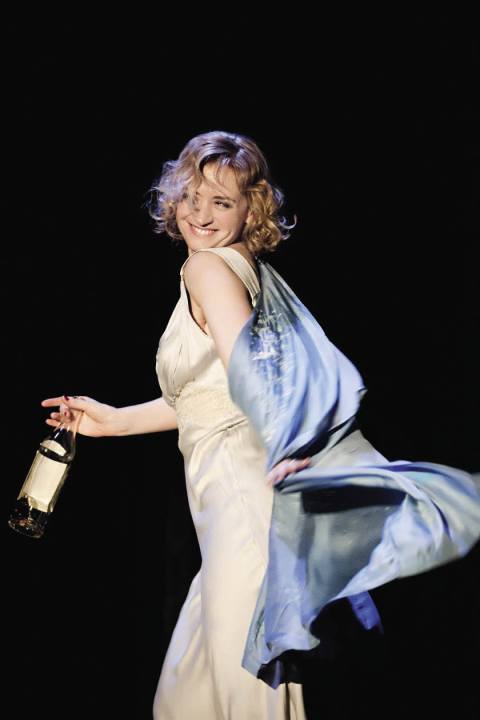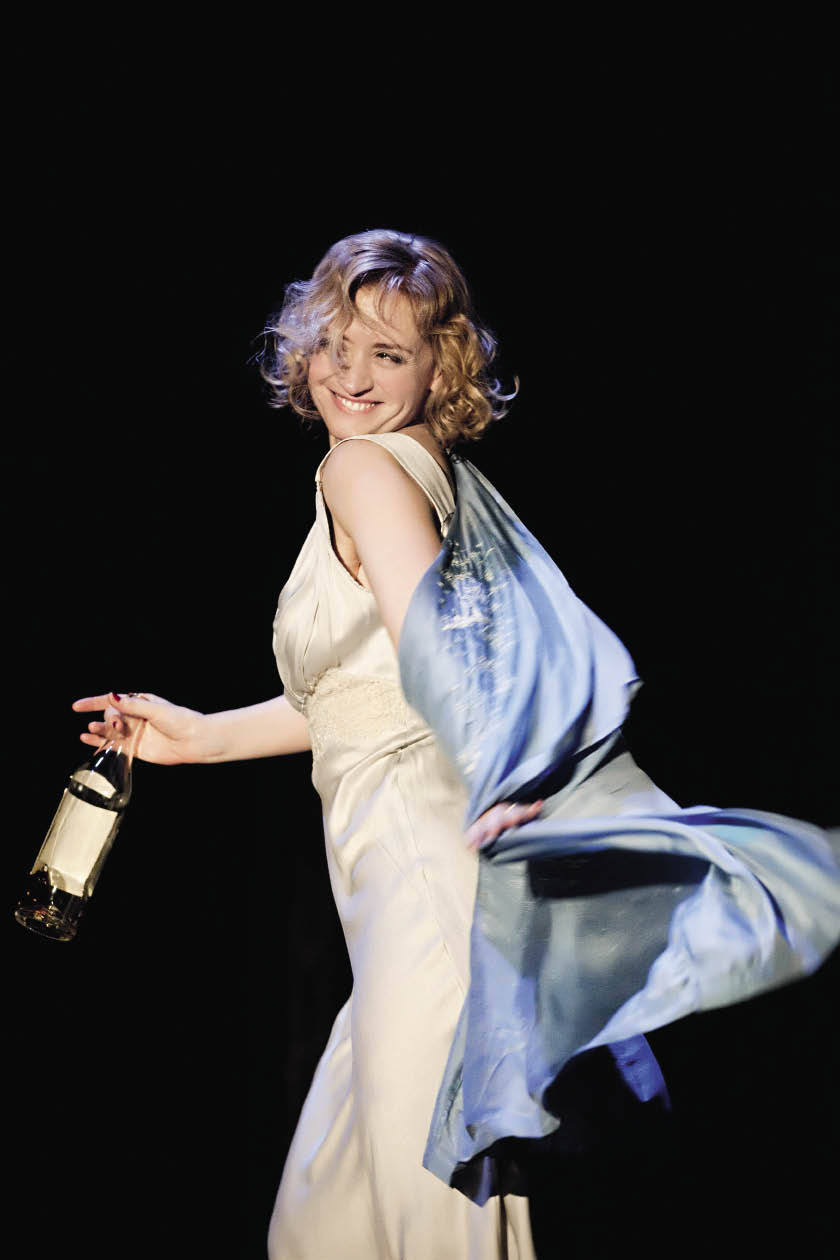Incredibly boring. That’s how a cracking courtroom drama seems at first. Case closed. We know whodunnit already. Alma Rattenbury, a luscious middle-aged nympho, has bashed in the skull of her deaf old husband with the help of a teenage builder, George, who shares her bed.
Incredibly boring. That’s how a cracking courtroom drama seems at first. Case closed. We know whodunnit already. Alma Rattenbury, a luscious middle-aged nympho, has bashed in the skull of her deaf old husband with the help of a teenage builder, George, who shares her bed.
Newspapers carry lurid reports of a drunken Alma dancing in her husband’s blood and trying to seduce the policemen who came to arrest her. This bad-taste orgy of violence took place in Bournemouth in 1935 but the authorities gave it ‘a West End transfer’ by selecting the Old Bailey for the trial. Crowds of journalists, prudes and villain-oglers thronged to the high court to see the depraved sexpot swing for her crime.
The young Terence Rattigan was fascinated by the case but it wasn’t till the 1970s that he dramatised it for radio, and in the final year of his life he adapted the radio script for the stage under the title Cause Célèbre. That arduous creative route march has left some painful blisters on the script. Instead of the ground plan of ‘the well-made play’ — a single setting and a time-span of a day or two — Rattigan has to grapple with a dozen locations and a narrative sequence covering several years. So the play’s structure lacks the vibrant internal beauty we’re used to with Rattigan.
And the staging by Hildegard Bechtler is dark, airy and a touch morbid at times, and the visual harmony is marred by a split-level effect which locates several scenes in a sort of suspended tree house high above the stage. But aside from those tiny quibbles this is an utterly absorbing production of an imperfect but richly layered drama.
Rattigan, the master of suspense, teases us constantly about Alma’s degree of criminal responsibility. Students of law will find the exchanges in court, and behind the scenes, absolutely riveting. The sly, witty joshing of the barristers in their robing rooms as they mock and praise each other’s performances while attempting to elicit tactically useful information is as dramatically gripping as the agonies of Alma. Nicholas Jones is a suave and silky delight as Alma’s counsel, who uses every trick in the book — and several more which are in the book only because he invented them — to give his client a chance of cheating the noose. We eventually learn that her drunken frenzy after the murder (doubtless exaggerated by Fleet Street’s scandalmongers) was a self-sacrificing pantomime designed to save her young lover from the gallows. In the course of the play she unexpectedly evolves from a scheming, sex-crazed adventuress into a heroic and virtuous embodiment of love.
It’s one of the most wondrous transformations you’ll see on stage, and Anne-Marie Duff brings out every detail of Alma’s complex nature, her louche, affectionate, dotty and impetuous strangeness, with great assurance. Alma’s humanity is contrasted with the narrow priggishness of the chief jury woman, Edith (adeptly done by Niamh Cusack), but Edith’s relationship with her wayward son and its tragic outcome feel underdeveloped and a little forced. Rattigan’s director advised him to drop them altogether but the playwright was determined to deliver his condemnation of puritanism even if he had to do so from his deathbed.
Southwark Playhouse has welcomed a revival of Louis de Bernières’s only radio play, Sunday Morning at the Centre of the World. De Bernières wants to emulate Dylan Thomas and to honour south London as Under Milk Wood honoured south Wales. But without Thomas’s spark of lyrical genius he rarely ascends from the forgettable to the quotable. ‘There wasn’t any violence during the war,’ a pensioner complains. A graveyard comes to life and boasts, ‘People are always dying to get in.’ Those are the highlights.
The sprawling multitude of characters and the absence of a central storyline make the play a slog rather than a breeze. Connoisseurs of affectation will find the programme better value. The producing company, Bad Physics, disavows the ‘constraints of naturalism’ and aims for ‘a thrillingly fluid relationship with dramatic time and space’. Sane theatre-goers know that this sort of conceptualism is usually talentlessness in disguise and that a big idea is what people come up with when they can’t find a real idea.
In this case, the big idea is to put the audience in blindfolds and let them experience the sensual textures of south London by having scented towels flapped in their faces and lit cigarettes wafted under their noses. Which is unusual, perhaps, if not quite thrilling. And those blindfolds make the show a groper’s paradise. I was seated next to a young woman with a lovely soft voice and, I think, a Swedish accent. But, alas, she didn’t touch me.








Comments